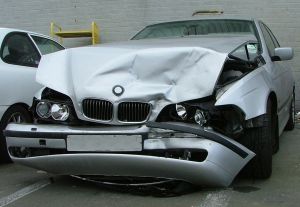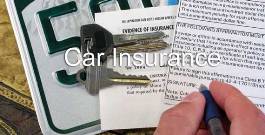 Uninsured/Underinsured Motorist (UM) insurance coverage in Florida, located in F.S. 627.727, is first party insurance to compensate insureds for economic losses (e.g., medical expenses and lost wages) and non-economic damages (e.g., pain & suffering) resulting from motor vehicle accidents. Although it must be offered by every carrier authorized to sell motor vehicle insurance in Florida, unlike PIP and property damage liability it is not mandatory, so it can be rejected.
Uninsured/Underinsured Motorist (UM) insurance coverage in Florida, located in F.S. 627.727, is first party insurance to compensate insureds for economic losses (e.g., medical expenses and lost wages) and non-economic damages (e.g., pain & suffering) resulting from motor vehicle accidents. Although it must be offered by every carrier authorized to sell motor vehicle insurance in Florida, unlike PIP and property damage liability it is not mandatory, so it can be rejected.
Besides the statute, a good place to start to gain an understanding of UM coverage is the Supreme Court of Florida case Mullis v. State Farm Mut. Auto. Ins. Co., 252 So.2d 229 (Fla. 1971). While the court majority provides a thorough overview of UM law, the holding itself is limited to whether or not a resident relative injured while operating a vehicle owned by another resident relative, but not covered under the UM policy, is entitled to UM benefits. The explicit terms of the insurance policy excluded coverage under these circumstances. The trial court agreed that the exclusion defeated plaintiffs’ cause of action and the First District Court affirmed, on appeal, citing in support its decision in United States Fidelity & Guaranty Co. v. Webb, Fla.App. 1966, 191 So.2d 869. The Supreme Court decided that the exclusion was contrary to the UM statute and, thus, uneforceable. It explained:
Whenever bodily injury is inflicted upon named insured or insured members of his family by the negligence of an uninsured motorist, under whatever conditions, locations, or circumstances, any of such insureds happen to be in at the time, they are covered by uninsured motorist liability insurance issued pursuant to requirements of Section 627.0851. They may be pedestrians at the time of such injury, they may be riding in motor vehicles of others or in public conveyances and they may occupy motor vehicles (including Honda motorcycles) owned by but which are not “insured automobiles” of named insured.
The court pointed out that this level of coverage is not extended to “other persons potentially covered who are not in the class of the named insured and relatives resident” in the named insured’s household. Importantly,
“These latter are protected only if they receive bodily injury due to the negligence of an uninsured motorist while they occupy the insured automobile of the named insured with his permission or consent.”
CAVEAT: After Mullis, the legislature amended section 627.727, Florida Statutes (1989), to allow insurers to offer limitations on the coverage provided by uninsured motorist coverage if certain statutorily mandated notice requirements are met. See, Carbonell v. Automobile Ins. Co., 562 So. 2d 437 (Fla 3rd DCA 1990).Specifically, the current version of subsection (9)(d) of section 627.727 provides:
The uninsured motorist coverage provided by the policy does not apply to the named insured or family members residing in her or his household who are injured while occupying any vehicle owned by such insureds for which uninsured motorist coverage was not purchased.
 Florida Injury Attorney Blawg
Florida Injury Attorney Blawg






